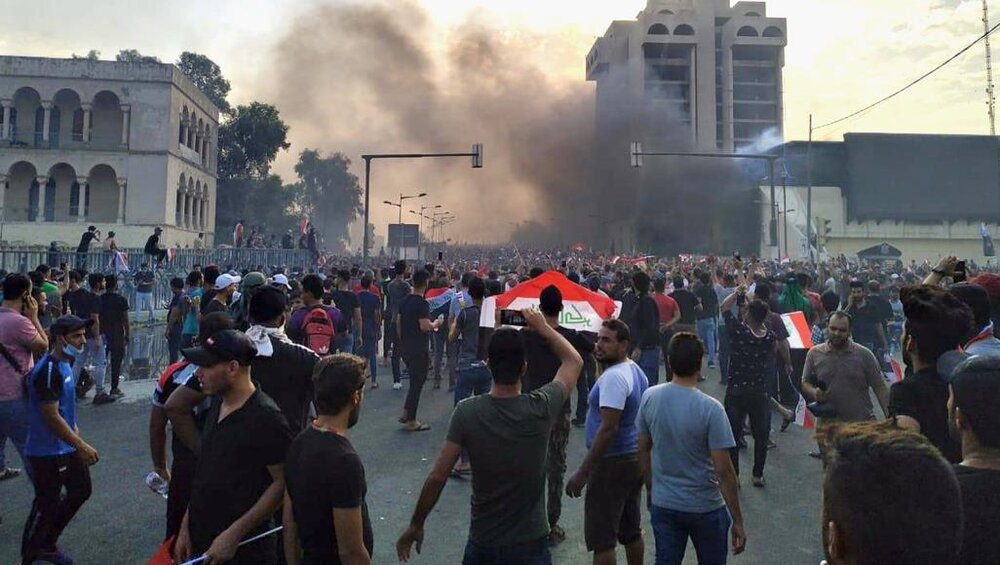West scenario to overthrow Iraqi government: A plot that has been foiled

In this regard, there are some important points that should be noticed:
1. The popular protests have been prompted over corruption, bribery of some political parties, and government’s incompetence, which have led to class gap. Therefore, as stipulated in the constitution, public protest is a right that none of Iraqi authorities are opposed to.
2. The issues that have been considered as the cause of the protests are not the result of the current government’s performance alone, but the result of years of foreign intervention and sabotage by infiltrators, who have fallen short of Iraq’s national wealth after the fall of Saddam’s regime, and have put the country in many crises in different ways. Creating and backing ISIS and causing a major security crisis is only a simple example of Western hostile actions.
3. Some individuals in the new generation (15-25 years old), who are one of key actors in recent protests, hold the sitting government, which has adopted anti-Israeli and anti-U.S. approach, responsible for the uprising. These Iraqi youth are not aware of the problems that the West and infiltrators have caused for their country, and are influenced by social media and anti-resistance media. But what has so far prevented stability and peace in the country is the result of the policies of the West and its regional actors who are seeking to take advantage of Iraq’s insecurity.
4. The role of some powerful political currents in fueling the protests, with the aim of undermining Iraq’s government and seeking a share in the government, is obvious. It is a matter which has caused some conflicts, without taking Iraq’s interests into account.
5. The exploitation of the protests by foreign elements, who have sought revenge of axis of resistance in Iraq, is an important factor that should not be overlooked. In other words, the context prepared for legitimate protests has provided the opportunity for these elements to use all of their financial, media and intelligence facilities, as well as their embassies in Baghdad to reach their goals in three areas, including:
A. Establishing a nationwide revolution to overthrow the current Iraqi government and pave the way for future plans.
B. Defaming the resistance groups and true friends of the Iraq among the youth. These groups have been the most important factor in fighting against Western proxy terrorism and have prevented the fragmentation of the country.
C. Assassination of key and influential figures of the resistance movement.
Accordingly, all the focus of the Western media was to portray traitor as a friend in the public opinion among the youth.
Of course, this scenario reduced the presence of protestors in Baghdad and changed the slogans from “the fall of the government” to “reforms” by clever leadership of the religious authority, government’s great measures and cooperation of parties, as well as continued efforts by domestic media to enlighten the public opinion. The important point is that on Friday and Saturday, the main group of protestors separated their way from rioters, following Ayatollah Sistani’s statement and trusting government’s promises to solve the problems.
Therefore, what happened in southern cities was not a demonstration, but brutal attack on parties’ headquarters and government departments by infiltrators. It seems that this event, despite all problems, provided some significant opportunities and foiled agitators’ plots.
Source: TehranTimes
















